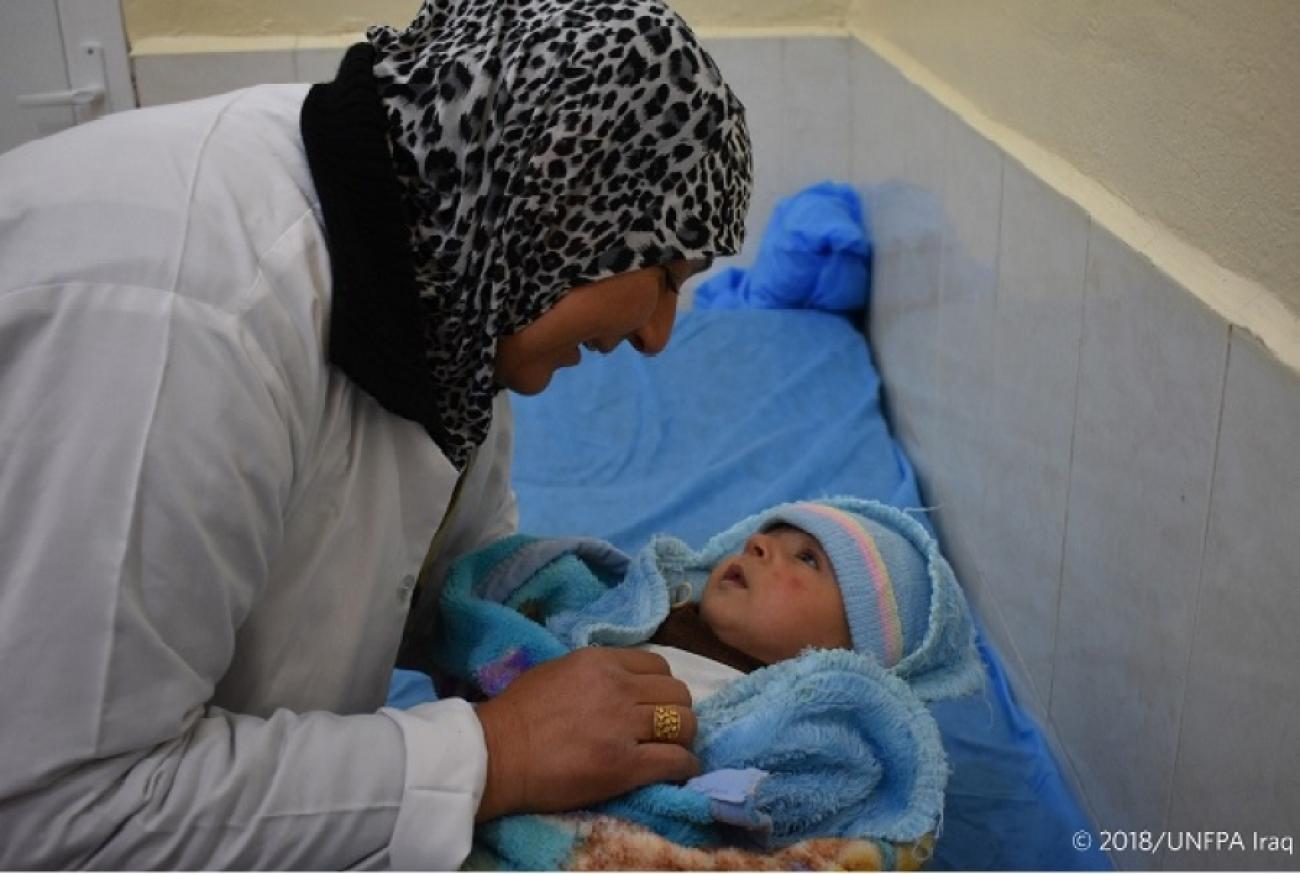Um Qassem had been working as a midwife in Anbar province in Iraq since 2003 when the Islamic State in Iraq and the Levant (ISIL) swept across large parts
Um Qassem had been working as a midwife in Anbar province in Iraq since 2003 when the Islamic State in Iraq and the Levant (ISIL) swept across large parts of her country in mid-2014, turning her and many other women’s lives into a nightmare, especially when the group tried to recruit her.
“ISIL constantly threatened me, my husband, and my family, as well as other doctors and nurses. We were working under fear; I was emotionally devastated but I had to put on a brave face for my patients who are bringing life in such a challenging environment.”
The group had turned the maternity ward into an emergency room for its fighters and gave the medical staff a small room for deliveries, forcing women to pay 21,000 ISIL pounds (approximately US$ 40) while childbirth was free at that time.
“One woman walked in without money, she was in a critical condition and needed to go into the delivery room immediately. The head midwife that ISIL had appointed refused to let her in, so I threatened to quit if we did not admit the woman. I knew that I was risking my life by such action, but the woman and her baby would have died if I had not spoken up.”
ISIL fighters took all the hospital’s equipment with them when they left to Raqqa, and burnt down the building.
“I felt as if my world had just fallen apart. This hospital was my home; I have been working here for 15 years,” she remembers.
“The biggest challenge is to get these women through the delivery and promise them a beautiful healthy baby. The main challenge is to meet the influx of deliveries and the potential complications of a birth,” she said.
UNFPA has been supporting Al-Qaim hospital since early December 2017, providing a fully-equipped Mobile Delivery Unit (MDU) and directly contributing financial and logistical support to the reproductive health team of one gynaecology specialist, three medical assistants, three midwives and support staff, and covering the cost of generators and waste management.
UNFPA also made sure that an established referral system was available for the transfer of complicated cases in need of surgery to more specialized services.
During the first quarter of 2018, UNFPA- supported medical team in Al Qaim hospital assisted in 378 normal deliveries.
UNFPA is currently in discussions with the Government of Iraq on the implementation of training programmes for midwives across the country, including specifying the role of midwives, pre-service trainings in nursing schools, as well as in-service trainings.


